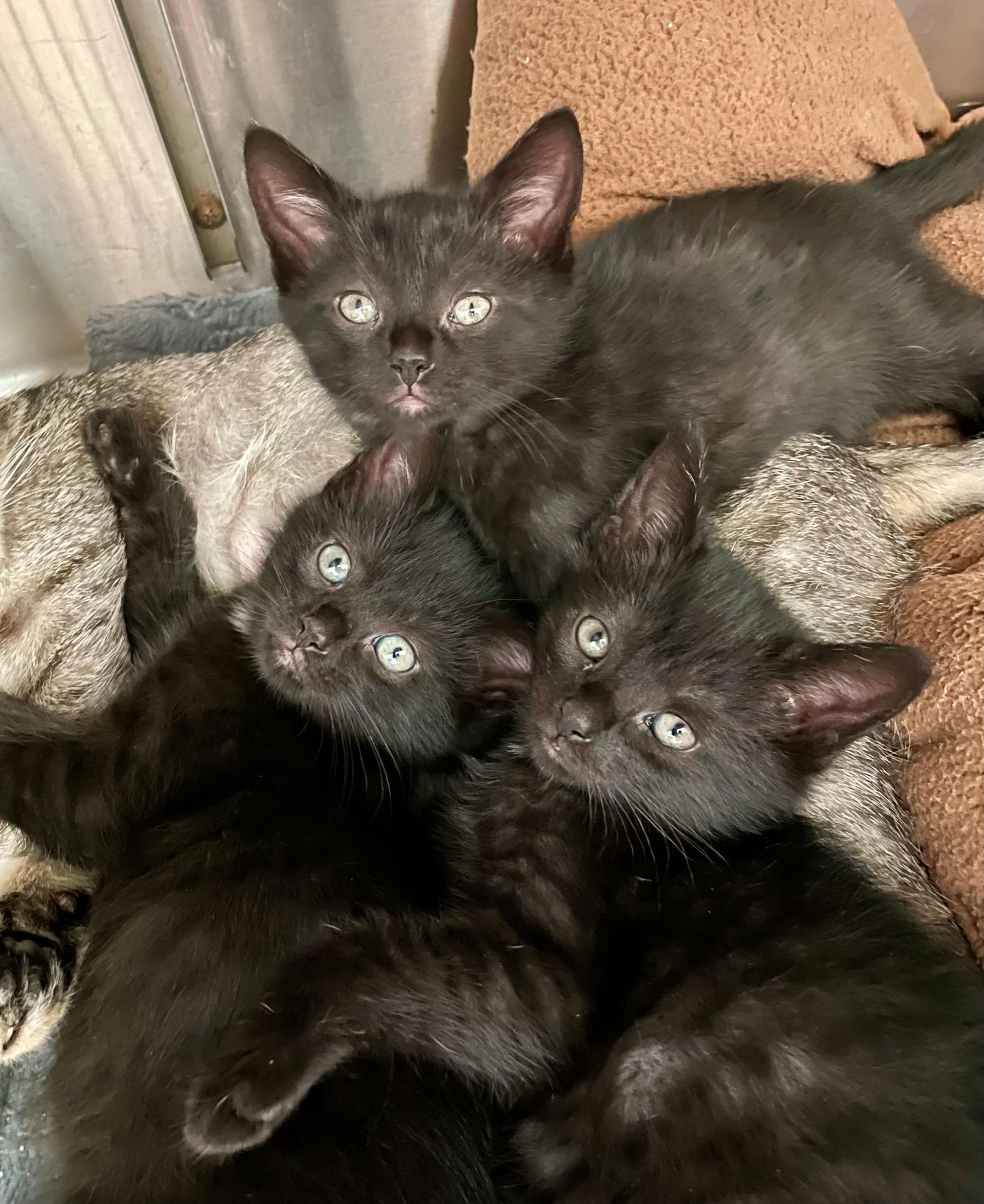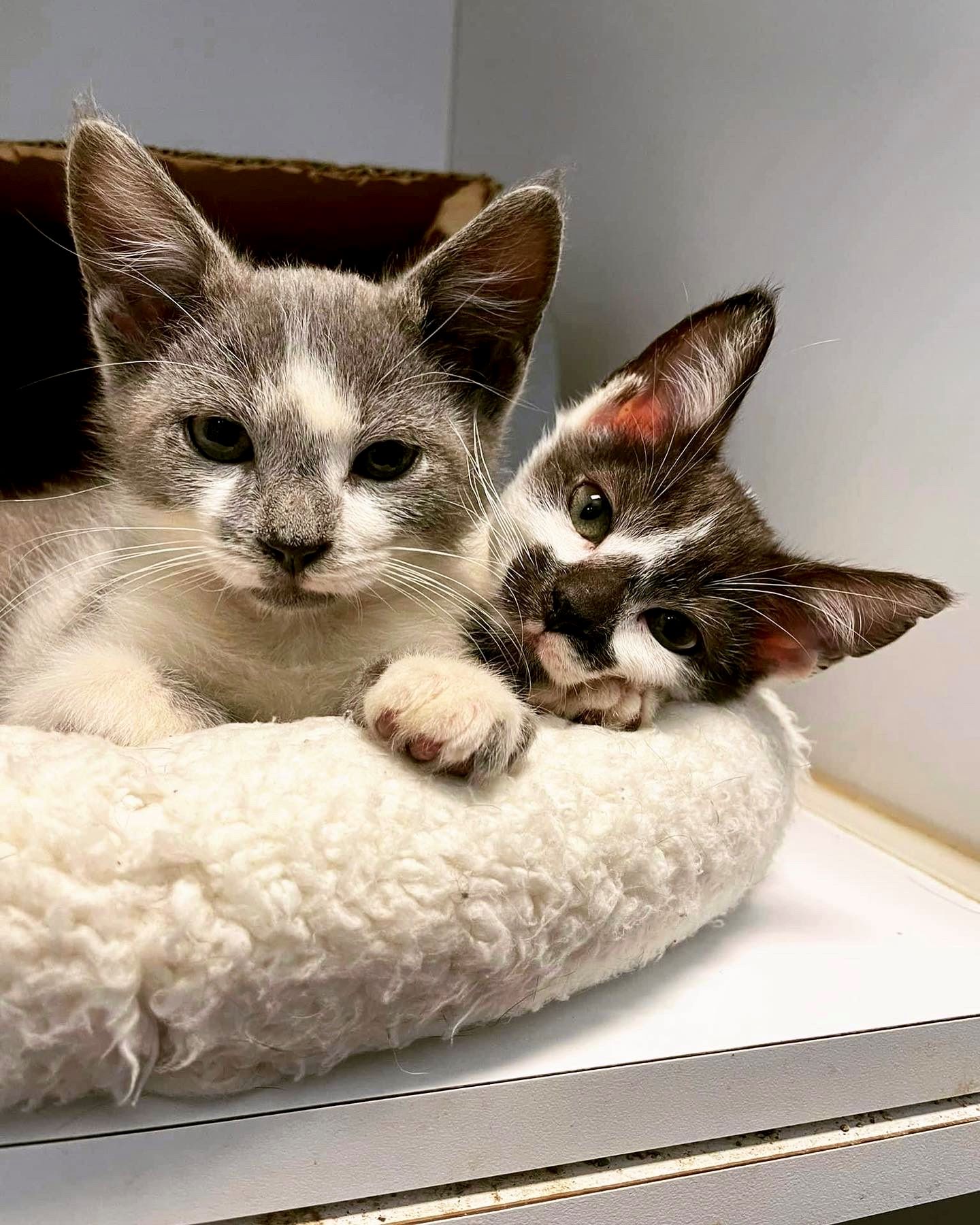At Advanced Animal Care, we understand the joy and responsibility that comes with welcoming a new kitten into your family. Those first six months are a crucial period in your kitten's life, and we're here to guide you every step of the way. Our dedicated team of veterinary experts has prepared this comprehensive guide to help you provide the best care for your new furry family member.
Caring for Your Kitten: The First Year
The American Veterinary Medical Association (AVMA) recognizes several crucial age periods of socialization and development in kittens. Socialization is the process by which kittens learn to be comfortable and well-adjusted in various social and environmental situations. Proper socialization is important for a kitten's overall health and behavior. Here are the key age periods according to the AVMA:
Neonatal Period (0-2 weeks):
Kittens are born blind, deaf, and completely dependent on their mother. The mother cat provides warmth, nourishment, and hygiene.
During this period, kittens should stay with their mother and littermates. Human intervention should be minimal.
Transitional Period (2-4 weeks):
Kittens begin to open their eyes and ears, and their senses start to develop. They become more mobile and may start to explore their environment.
The mother cat continues to care for and nurse the kittens.
Socialization Period (4-14 weeks):
This is a critical period for socialization, and it's when kittens are most receptive to new experiences and people.
Kittens should be introduced to various humans, including men, women, and children, as well as other animals. 
Expose kittens to different sounds, sights, and surfaces, and start basic litter box training.
Positive experiences and gentle handling during this period are crucial for well-adjusted adult cats.
Juvenile Period (12-24 weeks):
Kittens become more independent and start to play and explore extensively.
Continue socializing them with people and other animals.
Begin teaching basic obedience, grooming, and litter box habits.
Kittens are typically weaned during this period.
Adolescence Period (24 weeks to 1 year):
Sexual maturity begins, and behavioral changes may occur.
It's essential to provide regular veterinary care, including spaying or neutering.
Continue training and socialization to ensure the kitten grows into a well-behaved adult cat.
Proper socialization during these crucial age periods is vital for kittens to develop into well-adjusted, confident, and friendly adult cats. Early socialization helps prevent behavioral issues and contributes to a positive human-animal bond. It's important for cat owners to work closely with their veterinarians and breeders to ensure that kittens receive the necessary care and socialization experiences during these formative stages.
Nutrition Tips for Kittens
- Choose High-Quality Kitten Food: Look for commercial kitten food that is specially formulated for their age and needs. It should meet AAFCO (Association of American Feed Control Officials) standards. Wet food, dry food, or a combination of both can be suitable, but high-quality ingredients are essential.
- Feed According to Age and Weight: Kittens have different nutritional requirements as they grow. Follow the feeding guidelines on the food packaging or those provided by your veterinarian. Typically, kittens should be fed more frequently than adult cats, usually three to four times a day until they are around 6 months old.
- Avoid Homemade Diets: Homemade diets may lack essential nutrients and could lead to deficiencies or imbalances. It's best to rely on commercially prepared kitten food.
- Gradual Transition: If you need to change your kitten's diet, do so gradually to avoid digestive upset. Mix the old and new food over a week or so, increasing the proportion of the new food.
- Monitor Portion Sizes: Be mindful of portion sizes to prevent overfeeding or underfeeding. Portion sizes should be appropriate for your kitten's age, size, and activity level. Overfeeding can lead to obesity, while underfeeding can stunt growth.
- Provide Fresh Water: Make sure your kitten always has access to fresh, clean water. Hydration is vital for their health.
- Avoid Overly Restrictive Diets: Kittens are growing rapidly, so it's not the time for strict calorie restriction. Focus on providing balanced nutrition instead.
- Regular Vet Check-Ups: Schedule regular check-ups with your veterinarian to monitor your kitten's growth, health, and nutritional needs.
- Avoid Table Scraps and Treats: While it's tempting to share food with your kitten, it's best to avoid table scraps and limit treats to those specifically designed for kittens. Many human foods are not safe for cats and can lead to health problems.
- Be Aware of Allergies: Some kittens may have food allergies or sensitivities. If you notice any signs of allergies like diarrhea, vomiting, or skin issues, consult your veterinarian for guidance.
- Consider Wet Food: Wet kitten food can be a good option because it provides additional hydration and is often more palatable for kittens.
- Follow Your Veterinarian's Recommendations: If your veterinarian recommends a specific brand or type of food due to your kitten's unique needs or health issues, follow their guidance.
Socialization Tips
- Positive Social Experiences: Interact with your kitten daily. Gentle handling and playtime are essential for social development.
- Introduce to Other Pets: If you have other pets, introduce them gradually to ensure a smooth integration.
- Expose to Various Environments: Expose your kitten to different people, places, and situations to help them become well-adjusted adults.
Litter Box Training
- Choose the Right Litter Box: Select a litter box that is appropriately sized for your kitten. Consider starting with a smaller box and then transitioning to a larger one as they grow. Some kittens prefer covered litter boxes for privacy, while others like open ones. Experiment to see which type your kitten prefers.
- Select the Right Litter: Opt for a high-quality, unscented, and clumping cat litter. Kittens often prefer the texture of fine-grain litter. Avoid using scented litters initially, as strong odors may deter kittens from using the box.
- Location Matters: Place the litter box in a quiet, easily accessible, and low-traffic area. Ensure it's away from their food and water dishes. Be consistent with the location. Once your kitten gets used to the spot, avoid moving the litter box frequently.
- Introduce Gradually: When bringing a new kitten home, show them the litter box immediately. Gently place them in the box, so they become familiar with it. Gradually, let the kitten explore the box on their own.
- Regular Cleaning: Keep the litter box clean by scooping waste daily and changing the litter regularly. Kittens are more likely to use a clean box. Thoroughly clean and disinfect the litter box when you change the litter to remove any lingering odors.
- Positive Reinforcement: Praise and reward your kitten when they use the litter box. Positive reinforcement encourages good behavior. Avoid scolding or punishing your kitten for accidents outside the box. This can create anxiety and hinder litter box training.
- Observe Their Behavior: Watch for signs that your kitten needs to use the litter box, such as sniffing around, circling, or meowing. Quickly place them in the box if you see these signs.
- Address Accidents Promptly: If your kitten has an accident outside the box, clean it up immediately with an enzymatic cleaner to remove the scent. This helps prevent repeat offenses in the same spot.
Recommended Vaccines According to American Animal Hospital Vaccination Guidelines
- Feline Distemper (FVRCP): Kittens should receive the first dose at 6-8 weeks, followed by booster shots at 10-12 weeks, and 14-16 weeks, then annually.
- Rabies: The initial vaccine is typically given at 12-16 weeks and is boosted at one year. Subsequent vaccinations may vary by state regulations.
- Feline Leukemia (FeLV): Recommended for kittens, especially if they will be exposed to outdoor environments. The first dose is typically given at 8-10 weeks, followed by a booster at 12-14 weeks, then annual boosters for at-risk cats.
Our team of veterinary professionals is here to support you and your kitten's health and well-being. If you have any questions, concerns, or require more detailed information, don't hesitate to contact us. We're committed to providing the highest level of care for your beloved feline friend.
